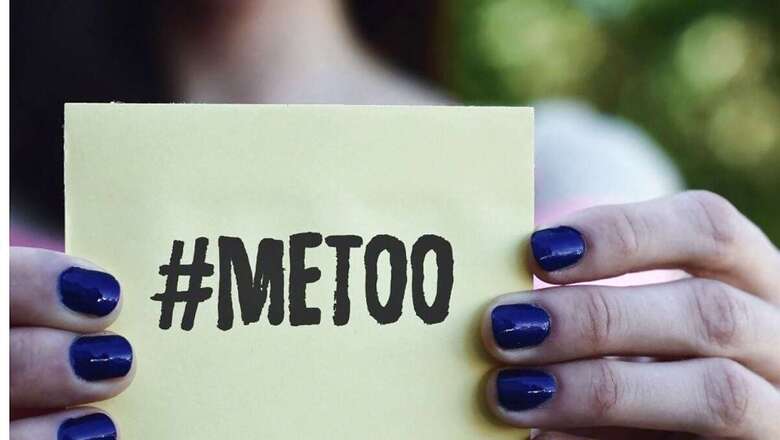
views
The Kannada film industry’s #MeToo movement, stories of sexual harassment, underscores the need for boundaries and change in mindset of influential producers and directors, women actors told News18.
Neethu Shetty, a prominent Kannada actor, who has won several awards, including the Karnataka State Film Award for ‘Koti Chennayya’, spoke of the industry’s “sweeping under the carpet" attitude. Shetty told News18: “Once when I requested a producer for some time for a film group that wanted to read out a script to him for a small-budget film, his response was that I should leave it and join him for a holiday in Goa instead."
“Ask any woman who has acted in Kannada films. They will have a story of harassment to tell. Those who think they can act without accountability need to learn boundaries," said a visibly upset Kannada actor, who has appeared in several southern language movies. She did not want to be named, fearing it could affect her ongoing project.
The mentality of certain groups in the industry, who believe they can speak or behave inappropriately and get away with it because they are known to be rich, powerful and influential, has to change, Neethu reiterated. She spoke of how the Hema Committee report on the Malayalam film industry serves as an example for every industry to introspect and provide women a platform to air their concerns, without being silenced by the system’s hypocrisy.
Many women actors did not want to speak about their experiences of sexual and mental harassment, as they felt the “time was not right yet". However, the move by the Karnataka State Commission for Women to set up a Prevention of Sexual Harassment (PoSH) committee and the demand made by an independent collective called Film Industry for Rights and Equality (FIRE), advocating for a safer work environment, are seen as a significant step towards change.
#WATCH | Karnataka: Actor Chetan says, "Our FIRE (Film Industry for Rights and Equality) organisation yesterday have all put it up that we want Hema community report of our own in Karnataka from a retired judge who has commissioned commitment to gendered rights and gender… pic.twitter.com/6YVuKHPSYX— ANI (@ANI) September 5, 2024
‘NOT ALLOWED TO RAISE ISSUES’
On September 4, shortly after the release of the Justice Hema Committee Report in Kerala, a collective of over 1,550 film personalities approached Karnataka Chief Minister Siddaramaiah, seeking the government’s assistance in establishing a committee led by a retired judge to address sexual harassment in the Kannada film industry, similar to the one formed in Kerala.
The Karnataka State Commission for Women, headed by Nagalakshmi Chowdhary, instructed the office-bearers of the Karnataka Film Chamber of Commerce (KFCC) to set up a PoSH committee to address complaints related to sexual harassment within the industry. This move was met with severe pushback.
At the meeting, it was reported that many members of FIRE were not allowed to speak, with some even being shouted down as the KFCC officials did not recognise FIRE as an official group. Shetty, who was among those who spoke at the meeting, was told to “sit in her place", the actor recalled.
“We knew what we were going up against. Sa Ra Govindu and N. M. Suresh made it clear that I should keep my mouth shut and that I wasn’t allowed to speak at the meeting because I was from FIRE. The film chamber claimed nobody had approached them. But we know what their response would be if we did. Why would we go to them? That’s why we are seeking a PoSH panel that will hear our grievances with empathy and sensitivity. We want stricter rules to ensure that no form of harassment takes place from this day forward," Shetty said.
‘TRYING TO DEFAME KANNADA FILM INDUSTRY’
When News18 asked KFCC chairman N. M. Suresh about the establishment of PoSH and the events of the meeting, he responded by stating that the film chamber was the mother body and any complaints could be addressed directly to them. “Has anybody come to us so far? No! They are trying to defame the Kannada film industry, which has some of the most creative and illustrious artistes in the country. I haven’t received a complaint to date, so what are they talking about?" Suresh said.
According to Suresh, the KFCC has a forum to address the industry’s problems and provide appropriate solutions, so he questioned the need for a new women’s committee or any other forum.
He said they had heard from the Karnataka Women’s Commission, but were yet to receive the letter requesting details on the PoSH committee. “We will set it up, headed by a retired judge, but all this takes time, and we will do it after consultations. We don’t need any organisation called FIRE, we do not recognise them at all," he added.
“It has come to the point where if a man hugs an actress to express happiness during the success of a movie or pats her back, it is perceived as #MeToo. There are intimate scenes in films, and if they are being shot, and suddenly the actress feels uncomfortable and cries foul saying a line has been crossed, how do we tackle this," Suresh asked.
LIST OF 17 DEMANDS
The collective FIRE, led by filmmaker Kavita Lankesh, has been relentlessly pursuing the issue of creating safe working environments for women in Kannada films since its formation in 2018.
What does the Women’s Commission plan to do? According to Nagalakshmi Chowdhary, who, along with FIRE members led by Lankesh, submitted a list of 17 demands concerning the working conditions of women in the industry, the Women’s Commission has set a 15-day deadline for the Karnataka Film Chamber to set up a PoSH committee, which is mandatory according to the law.
“There is no PoSH committee in Kannada cinema. There are men objecting to the formation of the committee and I have asked them who they are to say no when it has been made mandatory by law. I need to know why there’s no PoSH committee. Will it be formed? Why will it not be formed? The Karnataka Film Chamber of Commerce must submit details about the PoSH committee within 15 days," Nagalakshmi told the media.
Lankesh spoke of the Women’s Commission’s decision to conduct a confidential survey where all women actors, junior artistes, production assistants and others involved in the film industry will share their experiences. “They will conduct a detailed survey on what is being done for women’s welfare, their grievances and how they can be addressed. While actors may be bold and speak up, there are other artistes whose livelihood depends on the industry and don’t know where to express their experiences if they have faced sexual or mental harassment. This survey will help focus on that," Lankesh told News18.
FIRST CASE FILED IN 2018 ENDS IN ‘NO EVIDENCE’
One may recall the case filed by actor Shruthi Hariharan against actor Arjun Sarja in 2018, which brought a #MeToo allegation in the Kannada film industry into the spotlight.
Hariharan accused veteran star Arjun Sarja of “lewd and unprofessional" behaviour during the shooting of the film ‘Vismaya’ two years earlier. She alleged that during the rehearsal for the movie, while delivering their lines, Sarja inappropriately pulled her close and hugged her without her consent. She claimed that Sarja also asked the director if they could introduce a shot of foreplay for the scene to increase its effectiveness. Hariharan stated that she did not appreciate the way the scene was discussed and called it completely unprofessional.
Two years after the incident, at the peak of the MeToo movement in India, the actor decided to speak out, hoping to prevent other actors from crossing the line with their women co-stars. Sarja, a popular multilingual actor, denied the allegations as false and filed a defamation suit against Hariharan.
Sarja stated that having worked with over 60-70 women actors in more than 150 movies, he was appalled by the allegation. He said he was a professional actor and had told the director that he was not comfortable performing certain intimate scenes mentioned in the script.
In 2021, three years after Hariharan filed her sexual harassment complaint against Sarja, the Bengaluru police, after investigating the case, filed a ‘B report’, stating they could not find sufficient evidence to substantiate the allegations made in the First Information Report (FIR) filed by the complainant.


















Comments
0 comment